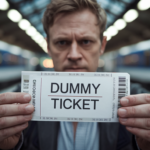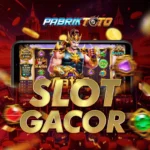According to the late author and teacher Joseph Campbell, mythology teaches that we all carry destructive ?dragons? in our unconscious.? Dragons are learned conditional patterns in your psyche that constrain you. They are messages internalized from the culture or family that say you?shall?do something to be valued, approved of, or fit in: you shall make money your life goal, you shall have children, you shall belong to a certain religion, you shall not exceed your father?s or mother?s success, you shall not be an artist, you shall become a banker, you shall be heterosexual, you shall hide your ethnicity, you shall smoke, you shall get married, buy a house, become a house keeper, get a college degree, become an alcoholic (like the rest of us), etc.? Some of these ?shalls? could fit your authentic life, others will not.
Campbell teaches that the ancient tradition of slaying the dragon was metaphorical for slaying these ?shalls.?? In the story of the warrior who slays the dragon, the warrior approaches the dead dragon and finds that on each scale of the dragon is written the words ?thou shalt.??? The warrior then tastes the blood of the slain dragon?that is, he internalizes the power that it took to slay it.? He is then ready to lead his true, authentic life.
So what does this slaying of the dragon entail in real time?? It entails approaching and?overcoming?(i.e. slaying)?the internal fears and doubts that hold you back.? This could look like psychotherapy, silent meditation retreats, twelve-step recovery from heroin addiction, alcohol, gambling, or sex addiction, etc. We could do primal scream therapy, deep grief work, Al-anon recovery, codependency recovery, etc.
When we are ?running from the dragon? we are acting out our fears.? A friend of mine recently made a movie on heroin addiction.? One of the actors, a recovered addict himself, actually relapsed, overdosed and died shortly after the movie was released.? The dragon of addiction can be a treacherous one to slay. The?slaying? is usually a lifetime challenge.? One might get a good amount of recovery and turn their back only to find the dragon has recovered and coming back at them.
The book?Eat Pray Love?is a true-life depiction about the author, Elizabeth Gilbert, who finds herself married, in a suburban lifestyle, and suffocating. She is living a ?thou shalt? life.? Miss Gilbert didn?t want to be married, have a house, or get pregnant. She was doing what her dragon told her to do? what she ?shalt? do to fit in, be accepted, etc. ?She has a nervous break down, picks up the sword of her own truth, and goes on a journey of self-discovery by leaving everything behind and seeking teachers in Bali, Italy, and India.? In the process she ?slays her dragons? and finds a life of deep authenticity and tremendous success.
Oprah Winfrey recounts how as an impoverished girl in Mississippi she watched her grandmother hang laundry on lines outside.? The women in the family were traditionally all maids.? Her grandmother said to Oprah, ?Now you watch me, you?re going to do this one day.? (i.e. be a maid).? Winfrey remembers even then saying to herself, ?No, I?ll never do what you?re doing.?? Oprah was slaying thou shalt dragons early on.
When we take our own authentic adventure into life we require a certain ferocity that throws off the ?thou shalts? that do not fit, and also adopt others that will.? ?I shall remain sober.?? ?I shall become wealthy and contribute to society.?? ?I shall become an artist.?? ?I shall serve humanity in my career.?? ?I shall devote myself to a spiritual path.? or, unlike my family, ?I shall become an atheist.?? The key is that you find what is authentic to you and no one else.

Helen Bradley is a health blogger and the founder of her own blog about fitness. She has been blogging for three years now and loves to share what she learns with others. Helen enjoys reading, cooking, and staying active outdoors.











